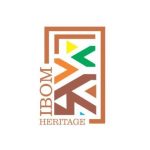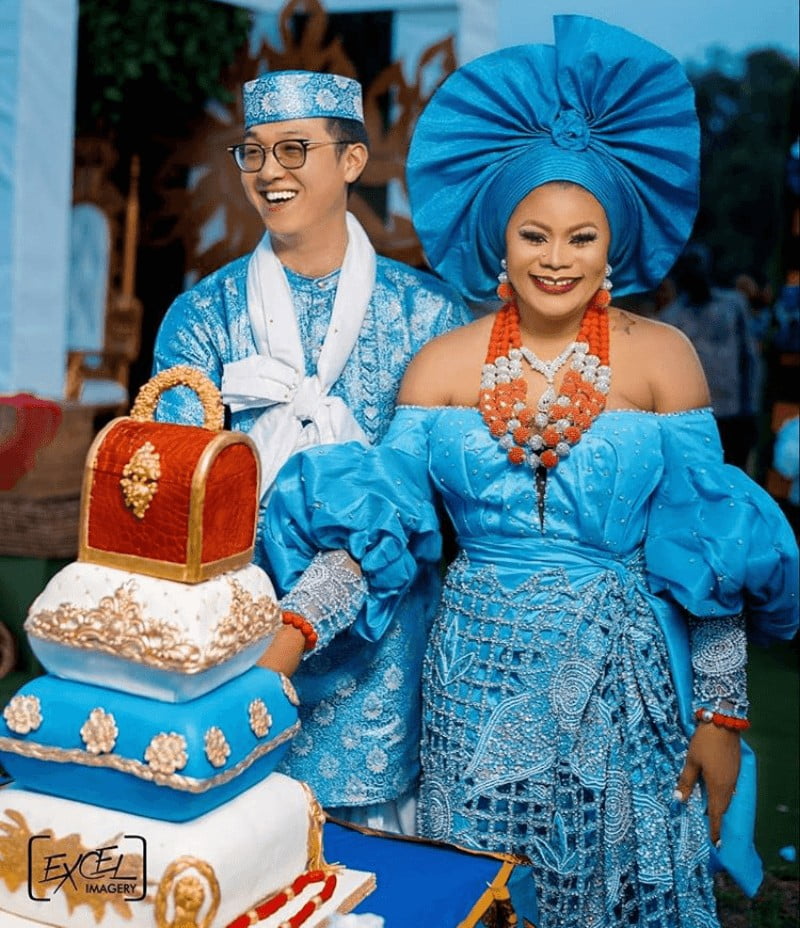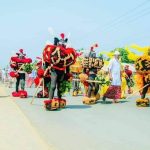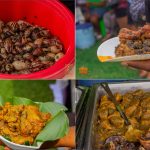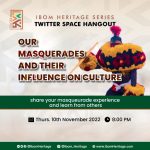We had earlier written about how to marry your Ibibio girlfriend; the first phases in getting married to your Ibibio girlfriend. Read that here. In this follow-up article, we bring you the remaining stages in the traditional Ibibio marriage process. Please read and share. Who knows, some ‘esen owo’ who has fallen in love with your sister may need it.
Nkòñ Udòk – Knocking the Door
This stage is very critical stage in the whole process of marrying in Ibibio land. At this stage, your family members escort you to the lady’s family.
Basically in theory, the ‘Knocking’ simply means enquiring formally for the availability of the girl and confirming the willingness of the family to release her to your family. This is where you hear the incoming family use the adage; “we have seen a beautiful flower in your yard and will like to pluck it and take home to ours”.
At this stage also, the process does not require your family head. He can send his representative and a delegation.
One important question you will also hear at this point is; “Nso’o ke adi?” This means; “what are you here for”.
Affirm and reaffirm your reason for the journey. You will get an applause and then will become eligible for the next stage.
The family will decide whether to issue you their marriage list or to ask you to come back for it. Since Ibibios are naturally easy going people, they will most likely not want you to go through the stress of travelling in too many times. They would have prepared the list before this point and would just hand it to you or the eldest man in the visiting party.
Items required at this stage for traditional rites may include; a bottle of strong drink, pods of kola, assorted fruits etc.
Following this event will be a meeting to negotiate the list. This article does not include negotiation of list as a formal stage in the marriage process because you can skip it. If you can afford the items on the list, why negotiate?
How Not To Marry Ibibio Girls: A Stupid Thing You Could Do
If you ask the girl’s family, “Please, when is the wedding date”, you have goofed big time.
Traditional Engagement (MbɅb)
When you are done with the list, the next stage is the formal betrothal of the prospective bride to the prospective groom in the presence of both families. It is called ‘mbɅb’ because it is the actual ‘request’ occasion. From this point, you are now betrothed to the lady according to the Ibibio tradition.
It is usually a celebration, although strictly on invitation. It is also the moment when you present the items on the marriage list.
Usòrò Ndò – Marriage Festival or Traditional Marriage
This is when the family gives your their daughter in the traditional sense. After now, you can leave with your wife. It is a festival, a celebration of families, community members and visitors.
Some Stupid Things You Can Do
This is a festival with its own dramas. If you even slightly show disgust at any of the dramas, you have embarrassed the entire community of the bride. Another stupid thing you can do is to see the lady before they bring her out. The family can fine you, and that would still be on a lighter note.
Notice that there are traditions in the Ibibio marriage process that are no longer in practice. One is the ‘Mboppo’ practice where elderly women pass a girl who has a suitor through fattening, circumcision and display at the market. Some of these practices that were adjudged harmful to health had to be suspended by present day Ibibio cultures. In fact, in today’s Ibibio land, once a young man and a maiden have agreed to get married and the families agree, everything else is fanfare.
Keywords: How to marry an Ibibio girl
